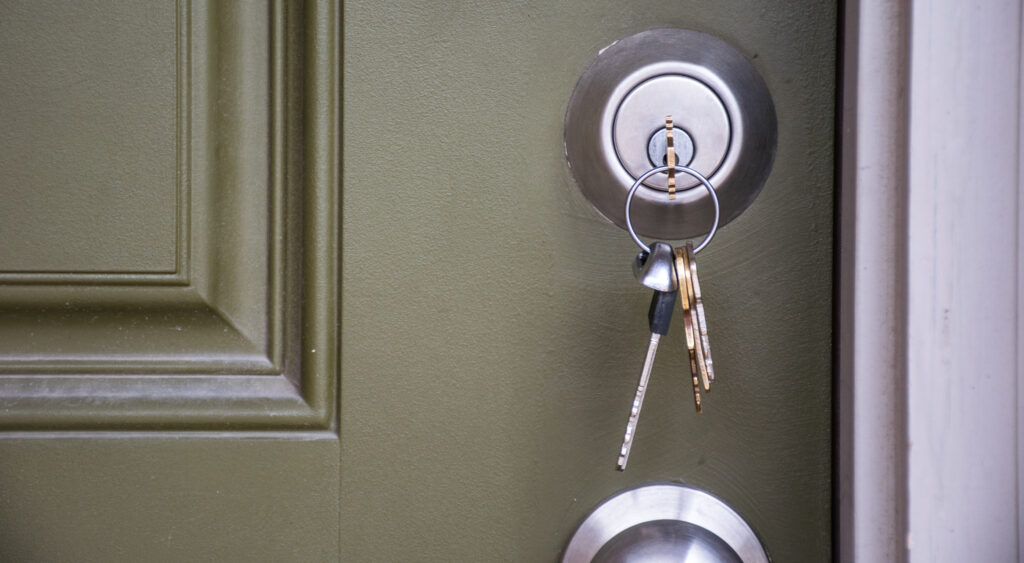Should I Rent or Buy a Home?

Many people may think that buying a home is always superior to renting. The truth is, there isn’t a universal right answer on whether you should buy vs rent because this isn’t just a financial question, but it’s also about the desired lifestyle. Let’s break down the true financial costs and lifestyle considerations of renting vs buying to shed more light on which is the better fit for you.
Financial Implications
- Initial Costs
-
- Buying: The large upfront costs of buying a home are a key component of whether you should buy or rent. Here are the 3 main costs to consider:
- Downpayment: Depending on the type of mortgage, you’ll need to pay down 5-20% of the home’s value.
- Closing Costs: To finalize the home’s purchase, expenses like loan origination fees, appraisal fees, home inspection fees, and attorney fees quickly add up to about 2-5% of the home’s value.
- Mortgage Insurance: If you don’t put place a downpayment that is 20% or more of the home value, banks may mandate that you have mortgage insurance to reduce their risk. This can range from 0.2-2.25% of the loan amount.
- Buying: The large upfront costs of buying a home are a key component of whether you should buy or rent. Here are the 3 main costs to consider:
-
- Renting: The initial fees for a renter are minimal. Apart from the refundable security deposit (typically two months’ rent), small application fee, and paying the first month’s rent, there aren’t any other major expenses to begin renting. This is a large advantage for renters because they can use their savings for better investment opportunities.
- Ongoing Costs
-
- Buying: Homeowners face ongoing costs that are similar to renting but have some variability due to unknown maintenance & repairs. These costs include:
- Mortgage Payments: To satisfy the interest and principal of the overall mortgage, this can typically cost around 7-8% of the loan amount today.
- Property Taxes: This largely depends on the state and county you live in; this typically ranges between 0.5-2% of the value of home.
- Homeowners Insurance: This has some variation depending on location, home age, credit score, and policy deductible; but it is typically $1,000-$3,000yr.
- Maintenance & Repairs: For upkeep, HOA fees, and repairs on the property, this can look like an expense of as much as 1-4% of the home’s value.
- Buying: Homeowners face ongoing costs that are similar to renting but have some variability due to unknown maintenance & repairs. These costs include:
-
- Renting: Renters pay a fixed monthly rent, and renters insurance (ranging from $100-$300yr), and may also be required to cover utilities. Maintenance and property taxes are typically the landlord’s responsibility.
- Equity and Investment
-
- Buying: One of the greatest benefits of buying a home is the opportunity to build equity and access growth in the home’s value. As mortgage payments are made, the homeowner is gradually owning more of the property. Having a lot of equity in a home can allow you to eventually take a Home Equity Line of Credit (a loan against your ownership), to fund any opportunities that you come across.
Also, as the value of your home increases with inflation, you’ll have the opportunity to sell it for some profit. It’s important to note that once you factor in all the expenses of owning your home along the way, the profit is usually slim. Because we can find greater returns in other opportunities, we don’t like to view our house as an investment, but rather, as a liability.
-
- Renting: Renting does not allow you to have ownership over a growing asset, however, renters can use the money they didn’t spend on buying a house, towards investing in other assets that offer higher returns as mentioned earlier.
- Tax Implications
-
- Buying: There are tax deductions and capital gains exclusion benefits available to homeowners.
- The most notable tax deductions include Mortgage Interest Deductions and Property Tax Deductions. These deductions, however, have been largely limited for many taxpayers due to the 2017 Tax Cuts and Jobs Act.
- The capital gains exclusion allows homeowners to sell their primary residence and exclude up to $250,000 ($500,000 if married filing jointly) of the capital gains from their taxes. The key here is that it needs to have been a primary residence for at least 2 of the last 5 years.
- Buying: There are tax deductions and capital gains exclusion benefits available to homeowners.
-
- Renting: Renters don’t have any major tax deductions they can elect. However, since they aren’t the owner of the property, they usually don’t have any extra property tax expenses or mortgage payments to pay, meaning more money in their pockets regardless.
Lifestyle Considerations
- Flexibility
-
- Buying: Homeownership offers stability but reduces flexibility. Selling a home and moving can be time-consuming and costly. If you plan on staying in one place for several years, the stability of owning a home may be the better option.
-
- Renting: Renting provides greater flexibility. Lease terms are typically one year, allowing for easier relocation. If your career requires you to relocate frequently or anticipate significant lifestyle changes, renting is the better pick.
- Personalization and Repairs
-
- Buying: Homeowners have the freedom to modify their homes to fit their preferences but also must take care of all maintenance and repairs. Repairs can be very costly and variable but they get to control when repairs are made.
-
- Renting: Maintenance and repairs are typically the landlord’s responsibility, and so they get to control how the place looks. Renters can enjoy a maintenance-free lifestyle but may also have to deal with landlords who are fine with things being outdated and who are slow to address any issues that come up.
Side by Side Comparison
Let’s consider the costs associated with buying a $300,000 home vs renting a comparable property for $2,500 per month.
- Buying:
-
- Upfront: $69,000
-
-
- Down Payment: $60,000 (20%)
-
-
-
- Closing Costs: $9,000 (3%)
-
-
- Ongoing: $2,333/month
-
-
- Mortgage Payments: $1,683/month ($240,000 mortgage @ 7.5% interest)
-
-
-
- Property Taxes: $250/month
-
-
-
- Homeowners Insurance: $100/month
-
-
-
- Maintenance & Repairs: $300/month
-
- Renting:
-
- Upfront: $7,525
-
-
- Security Deposit: $5,000 (refundable)
-
-
-
- First Month’s Rent: $2,500
-
-
-
- Application Fees: $25
-
-
- Ongoing: $2,520/month
-
-
- Rent: $2,500/month
-
-
-
- Renters Insurance: $20/month
-
In this scenario, renting is more expensive than buying on an ongoing basis, but the biggest key difference is the upfront cost difference. The biggest cost, to highlight again, is the opportunity cost of not using the extra $60,000 for true investments (like the stock market, investment properties, etc) that support wealth building in the long term.
In Conclusion
“What is the goal?” Before making a final decision on renting vs buying a home, we recommend taking the time to identify your financial and lifestyle goals specifically. Then, you’ll have the clarity you need to choose the path that fits your best.


